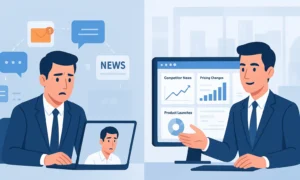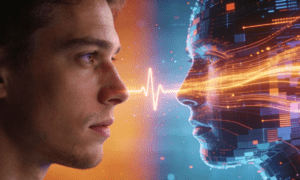The rise of artificial intelligence has transformed nearly every professional field and the legal industry is no exception. Among the most significant developments is the emergence of tools powered by legal ai that promise to improve legal drafting processes. Contract drafting has traditionally involved long hours of careful writing review and negotiation. It requires precision, clear language and a deep understanding of legal principles. With the growth of ai for legal purposes the question now arises whether artificial intelligence can actually write better contracts than humans. This question opens the door to a deeper discussion about efficiency, accuracy , consistency and the potential risks that accompany technological innovation in the legal profession.
Artificial intelligence has already proven its value in research document review and case prediction. However contract drafting is a more complex domain because it involves not only law but also business strategy negotiation skills and an understanding of human expectations. To evaluate whether legal ai can produce better contracts we must examine how these tools operate, what advantages they offer and what limitations or ethical concerns accompany their use.
The Evolution of Contract Drafting
For decades lawyers have relied on template clause libraries and precedents. These tools help maintain consistency and reduce the time required to draft standard agreements. However, even with these resources lawyers must analyze the context of each transaction, tailor the language to specific situations and ensure that the final document protects the interests of all parties involved.
With ai for legal drafting the process is being streamlined significantly. Modern legal ai tools can analyze thousands of contract samples, extract patterns, identify common clause structures and generate drafts that follow best practices. These systems learn from extensive datasets which allow them to produce contract language that is clearly structured and aligned with industry standards.
Artificial intelligence can identify trends across legal documents faster than any human. For example it can detect which clauses most frequently cause disputes which terms lead to delays in negotiation and which contract structures have the best outcomes in certain industries. This capability gives legal ai a unique advantage in optimizing contracts based on past data.
The Strengths and Capabilities of Legal AI in Drafting
Technology has pushed legal drafting into a new era. Legal ai tools offer several benefits that can significantly improve the quality of contracts.
Enhanced consistency and accuracy
One of the most important strengths of ai for legal drafting is its ability to maintain consistency. Contract drafting by humans can sometimes result in errors, inconsistencies or ambiguous language. These mistakes may lead to disputes or misunderstandings in the future.
Legal ai platforms reduce such risks by analyzing large amounts of legal text and suggesting standard language that reduces ambiguity. They can also detect missing clauses, identify contradictory statements and recommend improvements based on recognized drafting rules. This level of accuracy gives firms more confidence in the quality of their contracts.
Time efficiency and higher productivity
Drafting a quality contract requires substantial time for research review and revision. Lawyers often spend hours cross checking references, adapting clauses and ensuring compliance with relevant laws.
With legal ai most of these tasks can be automated. The technology can produce initial drafts within minutes. It can also review existing documents instantly and suggest precise edits. This gives lawyers more time to focus on strategy negotiation and client communication. The overall productivity of legal teams increases dramatically.
Improved risk management
Contracts are designed to allocate risk between parties. Legal ai systems can evaluate contract clauses in the context of historical disputes and identify areas where risk exposure is too high. For instance if a clause commonly leads to litigation the system can flag it during drafting.
By analyzing thousands of similar contracts legal ai can recommend stronger protective clauses or suggest alternative wording that reduces risk for clients. It can also highlight clauses that might violate regulations or create unintended obligations. This makes ai for legal a valuable tool for enhancing both legal and commercial risk assessment.
Real time compliance monitoring
Laws and regulations constantly change across industries and jurisdictions. Keeping drafting practices aligned with new legal requirements is often challenging for busy legal teams.
Legal ai tools can track regulatory updates and automatically incorporate them into contract templates. They can update language, suggest alternative clauses or alert lawyers when a draft does not comply with current rules. This ensures that contracts remain valid, enforceable and up to date.
Language clarity and readability
Many contracts are known for being difficult to understand even for experienced readers. Complex sentence structures, confusing terms and excessive legal jargon often create barriers for clients.
Ai for legal can simplify language without compromising legal accuracy. By analyzing readability metrics and comparing drafts to plain language standards the system can recommend clearer phrasing. This results in contracts that are easier for clients to understand and that reduce the chances of disputes arising from unclear communication.
Can AI Write Better Contracts Than Humans
While legal ai has many strengths the question of whether it can write better contracts requires a deeper exploration. Better contracts depend on several elements such as clarity, fairness , contextual relevance and the ability to foresee potential future issues. Here is how artificial intelligence compares to human lawyers in different aspects.
Strengths of AI over human drafting
Artificial intelligence can outperform humans in areas like speed, accuracy and consistency. It can analyze far more data than any lawyer and apply best practices uniformly across all contracts. This means ai for legal can produce drafts that follow industry standards more reliably.
In high volume environments such as corporate contracting procurement or compliance heavy industries legal ai can significantly reduce delays. Routine agreements like nondisclosure agreements, vendor contracts, software licensing documents and employment agreements can be drafted faster and with fewer errors.
Limitations of AI in legal drafting
Despite its strengths legal ai cannot fully replace human judgment. Contract drafting is not merely a mechanical process. It involves strategy negotiation psychology and the ability to understand nuance. These elements cannot be captured purely through data and algorithms.
Some limitations include:
- AI cannot interpret emotional or relational dynamics between contract parties
- AI may overlook unique contextual factors
- AI cannot negotiate terms or foresee political or cultural influences
- AI generated language may sometimes be too rigid or formula driven
Human lawyers have the ability to creatively adapt to unpredictable situations and provide strategic advice. These skills are essential for complex transactions such as mergers partnerships, litigation settlements or international agreements.
The ideal solution is collaboration
Instead of asking whether legal ai can replace lawyers the better question is how lawyers can use ai for legal to improve their work. The best contracts will likely come from collaboration between humans and machines. AI can handle repetitive tasks analysis and drafting while lawyers focus on negotiation customization and decision making.
This combined approach achieves the best of both worlds. Contracts can be drafted faster with fewer errors while still reflecting the depth of human understanding necessary for complex situations.
Ethical and Professional Concerns
The integration of legal ai in contract drafting brings several ethical considerations.
Confidentiality and data protection
Legal ai tools rely on vast amounts of data often stored in external servers. If client information is entered into such systems there is a risk of unauthorized access. Lawyers must ensure that any ai for legal tool they use complies with strict security standards.
Bias in training data
If the datasets used to train legal ai tools contain bias it can reflect in the generated contract language. Lawyers must review suggested clauses carefully to ensure fairness.
Accountability
Even if a contract is drafted by legal ai human lawyers remain responsible for its final content. Professional conduct rules require oversight review and approval by licensed practitioners.
Transparency
Clients must understand that artificial intelligence is being used during drafting. Clear disclosure fosters trust and ensures ethical compliance.
How AI Is Reshaping the Future of Contract Drafting
As technology continues to evolve legal ai will play a bigger role in contract creation review and negotiation. Some future trends include the following.
Automated negotiation support
Advanced ai for legal purposes is being developed to predict the negotiation behavior of opposing parties. These tools will analyze past interactions and draft terms more likely to be accepted.
Smart contracts and automation
Contracts linked to digital systems such as blockchain can automatically execute certain actions when conditions are met. Legal ai may help draft such agreements and ensure they function correctly.
Industry specific drafting engines
Different sectors such as finance, healthcare technology and construction require specialized agreements. Future ai systems will generate highly tailored drafts based on sector specific trends.
Conclusion
Artificial intelligence is reshaping the legal industry and contract drafting is one of the areas experiencing the greatest transformation. Legal ai offers speed, accuracy, consistency and improved risk management. While it may not fully replace human lawyers it can certainly enhance the quality of contracts and make the drafting process more efficient.
The future of contract drafting lies not in choosing between humans and artificial intelligence but in combining their strengths. Ai for legal can manage repetitive work and provide data driven insights while lawyers bring expertise judgment and strategic thinking. Together they can produce contracts that are clearer, fairer and more effective than ever before.
As legal ai continues to evolve the legal profession must adopt it responsibly ensuring transparency, confidentiality and ethical oversight. By striking the right balance lawyers can leverage technology to write contracts that truly meet the needs of clients in a rapidly changing world.
Read More From Techbullion



































